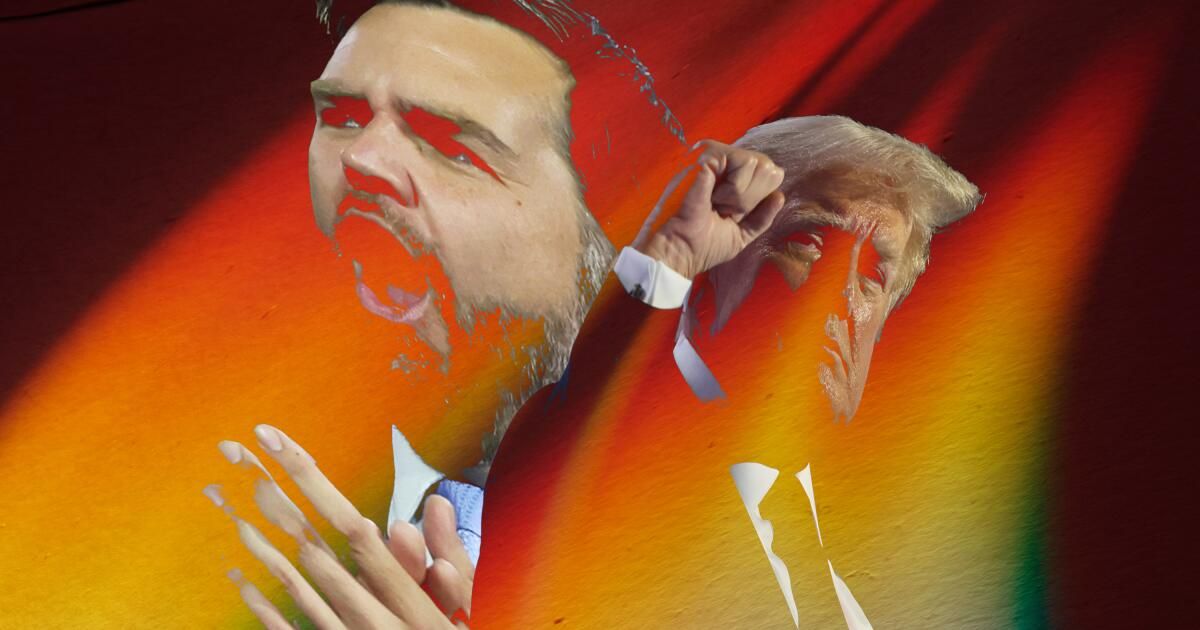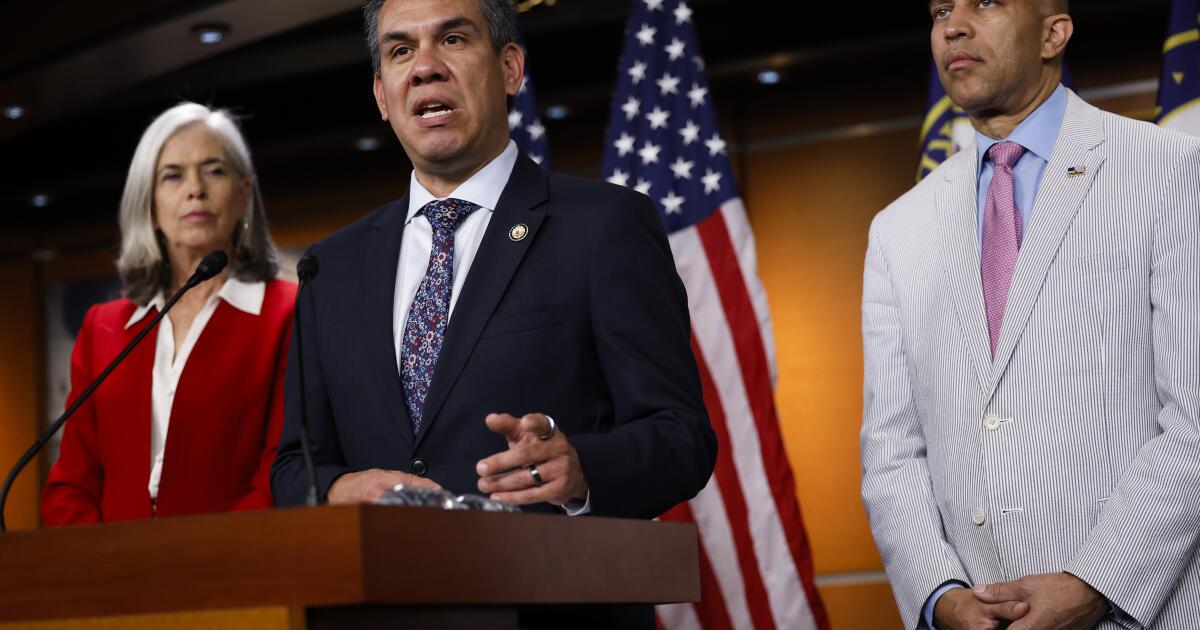Democratic politicians and pundits have recently begun calling Republican presidential candidate Donald Trump and his running mate, J.D. Vance, “weird.” As a scholar who has made his academic career in part celebrating the weird, I object. Trump and Vance do not deserve that compliment.
Strange is to be understood as anything that is strikingly contrary to the ordinary, predictable and easily understandable. It is a contrast to the normal. Think of blades of grass. Although no two are exactly alike, their variation remains within certain limits. But here is a blade that splits into three in half, with each finger curling into a loop. Why would it do that? Now that is one strange blade of grass!
Recently, my family and I visited Hayao Miyazaki’s giant Ni-Tele clock in Tokyo. What a strange object: it rises from the side of a skyscraper, complete with giant bird mannequins and claws. When noon comes, one claw opens to reveal a smiling sun, a fish tail rings a gong, and a bell-headed mannequin performs a ridiculous dance. Nature also offers plenty of oddities, such as the miraculously thin, Seussian stone stacks of Bryce Canyon in Utah, the surreal terraces of mineral deposits at Pamukkale in Turkey, and gloriously strange fish and fungi around the world.
Democrats are capitalizing on calling Trump and Vance “weird.” Allies of Vice President Kamala Harris and her presidential campaign have used the word enough to receive significant media coverage as a political strategy, and even praise for its success. The resonance of this strategy seems to reflect a widespread misunderstanding of who is really weird. The term should conjure up the guy who rides around Berkeley on a unicycle in a top hat; the standout business student who drops out of school to live on an organic seed farm; the high school kid who wallpapers his dorm room with posters of squid and snails, ignoring pop culture in favor of a deep fascination with mollusk biology. Each is, in his or her own way, a wonder of nature, and the world is richer for having them.
On the other hand, the behavior of Trump and Vance reflects something more troubling. Their views on women and reproductive rights, for example (degrading the former and opposing the latter) are inappropriate and deservedly minority. But, unfortunately, such views are not rare enough to be truly rare. Indeed, in contemporary America, Trump and Vance are normal, predictable, and easily understandable. They are ordinary, self-serving politicians who conform to the demands of those who have rewarded their behavior.
And even if these perspectives were more unusual, that would not be the source of these politicians’ evil. Yes, some unusual things are bad, like serial killings. And Trump has his moments of bewilderment (consider his frequent references to the fictional serial killer Hannibal Lecter on the campaign trail). But things and people are not bad. because They are weird. Treating weirdness as their primary flaw seriously misrepresents the nature of Trump and Vance’s departure from liberal values.
What is it to be liberal? It is to tolerate, or even celebrate, others with different values and practices. Liberal parents allow their children to make choices different from their own. Liberal societies are pluralistic and egalitarian and do not require citizens to adhere to the dominant culture and religion.
There are always gardeners who prefer to cut weird grass, and there are people who are equally uncomfortable around other people they consider weird. These are the people for whom the word “weird” is the insult of choice. In the conformist hell of high school (or at least some high schools), groups of kids who look very much alike and who value their normality (and even more so, being perceived as normal) make fun of kids who don’t fit in easily, like the shellfish lover. I was also called “weird” at school, but I learned to accept my own weirdness and weirdness in general. I realized that using “weird” as an insult is implicitly accepting a conformist worldview, a worldview that devalues rather than appreciates difference and novelty.
Our Democratic politicians and pundits are, and should be, better than that. Democrats pride themselves on being the party of diversity, on accepting people with a wide range of worldviews, cultures, sexual orientations, life experiences and interests, on making room for nonconformists and those outside the mainstream.
Using the word “weird” as a term of derision, as if that were the best description of Trump and Vance, may be politically advantageous at the moment, but it denigrates the truly weird. It is more accurate to call Trump and Vance liars, authoritarians, political shape-shifters without a conscience and wrong in their policies. Those are sufficient and more appropriate reasons to vote against them.
Eric Schwitzgebel is a professor of philosophy at UC Riverside and the author of “The strangeness of the world.“












